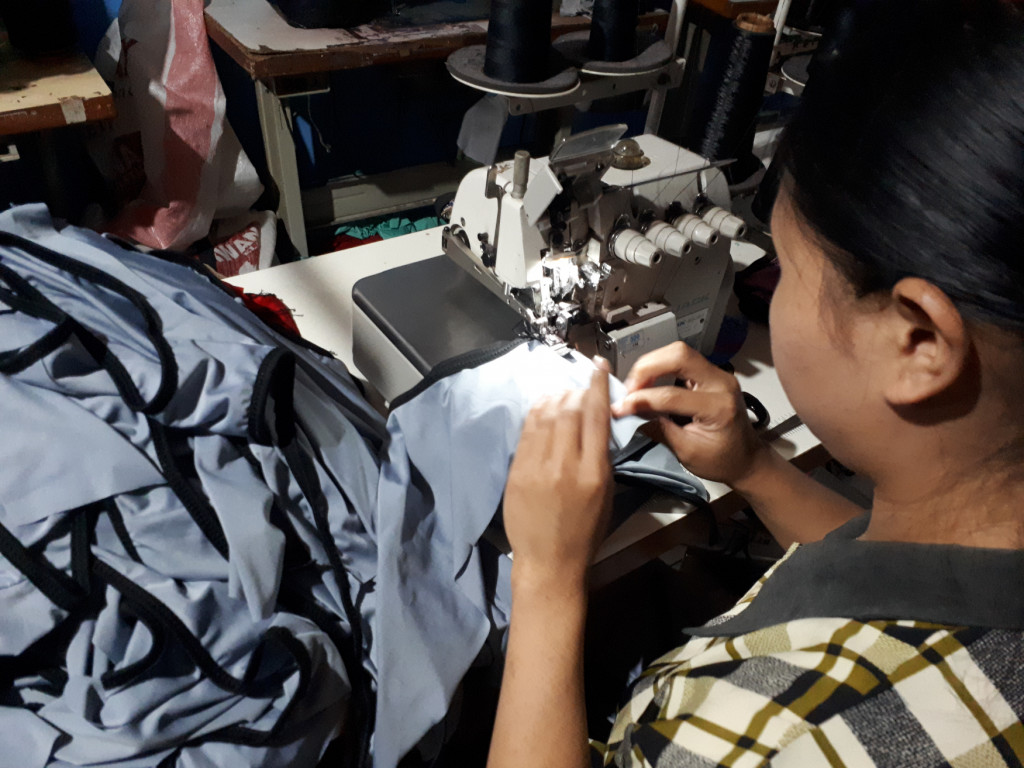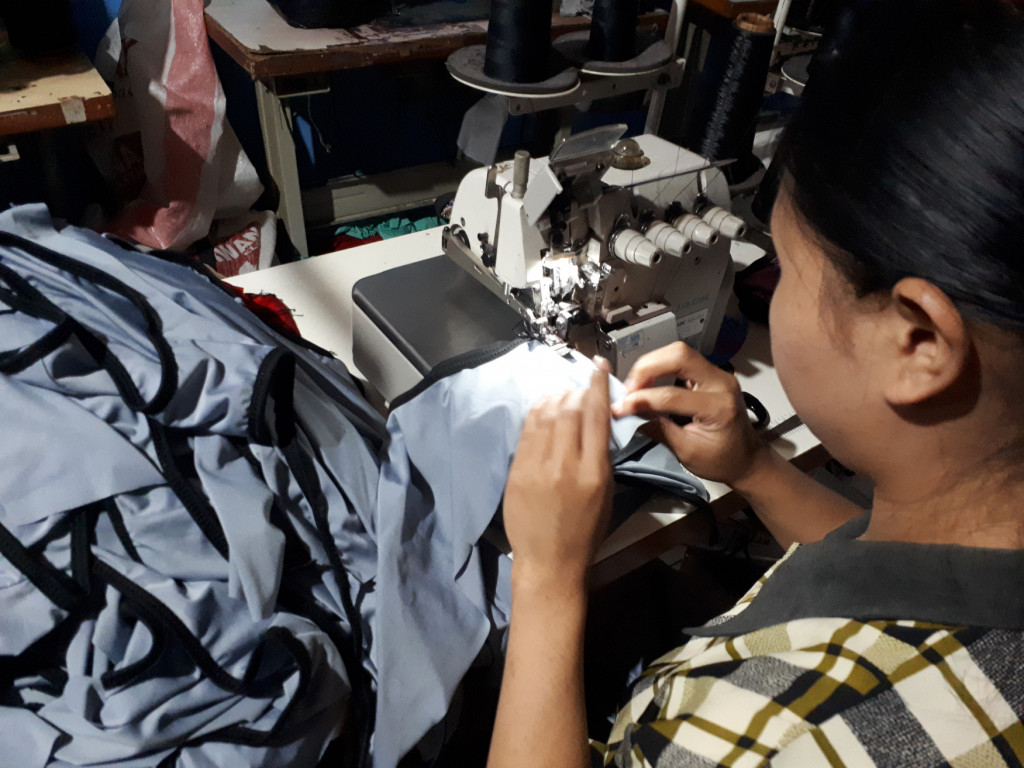Popular Reads
Top Results
Can't find what you're looking for?
View all search resultsPopular Reads
Top Results
Can't find what you're looking for?
View all search results‘Woke’ consumers push fashion industry to care about garment workers
A report by consulting firm McKinsey & Company in partnership with the Business of Fashion (BoF) highlights a shift to more socially conscious consumers, forcing companies to react.
Change text size
Gift Premium Articles
to Anyone
 Workers at a garment factory in Ungaran, Semarang, Central Java, carry out short daily exercise in between work on Oct. 3. Suppliers of the fashion industry have started to pay more attention to worker welfare as consumers become more aware about ethical production practices. (Jakarta Post/Ardila Syakriah)
Workers at a garment factory in Ungaran, Semarang, Central Java, carry out short daily exercise in between work on Oct. 3. Suppliers of the fashion industry have started to pay more attention to worker welfare as consumers become more aware about ethical production practices. (Jakarta Post/Ardila Syakriah)
Twenty-three-years-old Atria Zahrina used to buy specific fashion brands. For three years, at least once in three months, she would buy items of her favorite brands.
Old habits die hard, but upon learning about mistreatment of some workers at the factory producing clothing for the brand in developing countries last year, she lost interest in the brand.
Atria said she used to fill her wardrobe with clothes of the brands, as the products made her feel “cool and up-to-date” without having to spend much money.
It all changed, however, when she stumbled upon news of Indonesian garment workers staging protests against her fashion brand after reportedly not getting the promised pay.
The story intrigued her, and a quick internet search led her to information about an accident in the Bangladeshi capital of Dhaka: The collapse of the Rana Plaza building, which housed several garment factories, killed 1,130 factory workers in 2013.
“That truly opened my eyes. […] I felt extremely sad, even more so after realizing that I may have contributed to [workers’ mistreatment] as a consumer,” Atria told The Jakarta Post.

















